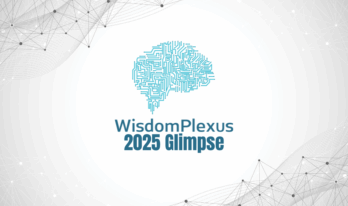In a society digitizing at an accelerated pace in all sectors, healthcare is no exception.
Driven to revolutionize models and healthcare systems worldwide, data mining in healthcare is now essential.
In this brief article, we will discuss the applications and benefits of data mining in healthcare.
To better understand the role of data mining in healthcare, let’s first recall the five varieties of data mining:
- Association: Look for patterns in which an event is linked to another event.
- Sequence Analysis: Look for patterns in which one event leads to another later event.
- Classification: Look for new patterns, even if it means changing the way the data is organized.
- Clustering: Find and visually document clusters of previously unknown facts.
- Prediction: Discovering data patterns that can lead to reasonable predictions.
Data mining is an increasingly important field of study in public health. When performing a variety of tasks, such as machine learning in research, data mining takes a wide variety of forms.
Prediction or grouping models can be created for prior risk identification or disease diagnosis based on certain symptoms of patients, thereby assisting the health professional in decision-making.
Especially in the case of rare diseases with which the professional has little experience.
The information gained by data mining can be used in pre-surgical analysis to anticipate the likely results of a given procedure.
The use of data mining, combined with machine learning algorithms, can assist the health specialist in critical moments that demand quick decisions when there is a deficiency of the resources presented.
The use of machine learning in preliminary drug discovery has the potential for several uses, from the primary screening of drug compounds to the anticipated success rate based on biological factors.
Also Discover: Pros and Cons of Data Mining
Data mining methods include determining normal patterns in this area, identifying unusual medical claims by doctors, hospitals, and labs.
Data mining can even help to establish erratic referrals or suggestions and false medical claims.
This is one of the prominent applications of data mining, which can be used to evaluate the effectiveness of medications.
It can analyze which procedure proves effective by examining and weighing symptoms, causes, and courses of treatment.
Moreover, the persistent use of this application could help regulate a treatment method for distinct ailments.
The healthcare area is one of the segments in which data mining has revolutionary potential.
In addition to assisting in providing in-depth analytical and predictive tools, data mining aims to assist in decision-making, detecting fraud and abuse, assisting in choosing treatments, researching symptoms, and identifying diseases' characteristics.
Taking all of this data into account in epidemiological studies raises expectations and hopes in terms of understanding the causes and mechanisms of diseases as well as the personalization of medical monitoring.
Prescriptions can be applied with corroborated data to avoid falsity.
Medications can be personalized, and, on a larger scale, endemic outbreaks can be identified with geographical references.
Data mining in healthcare allows the optimization of human and financial resources, as well as the efficient management of the complex and delicate stocking of supplies.
Concluding Words
Today, modern medicine has become almost inconceivable without the use of digitized personal data.
The emergence of e-health, m-health, NBICs, and data mining are modifying healthcare delivery, the doctor-patient relationship, and scientific understanding of the human body and diseases.
You may also like to read: Top 5 Data Mining Algorithms for Classification




